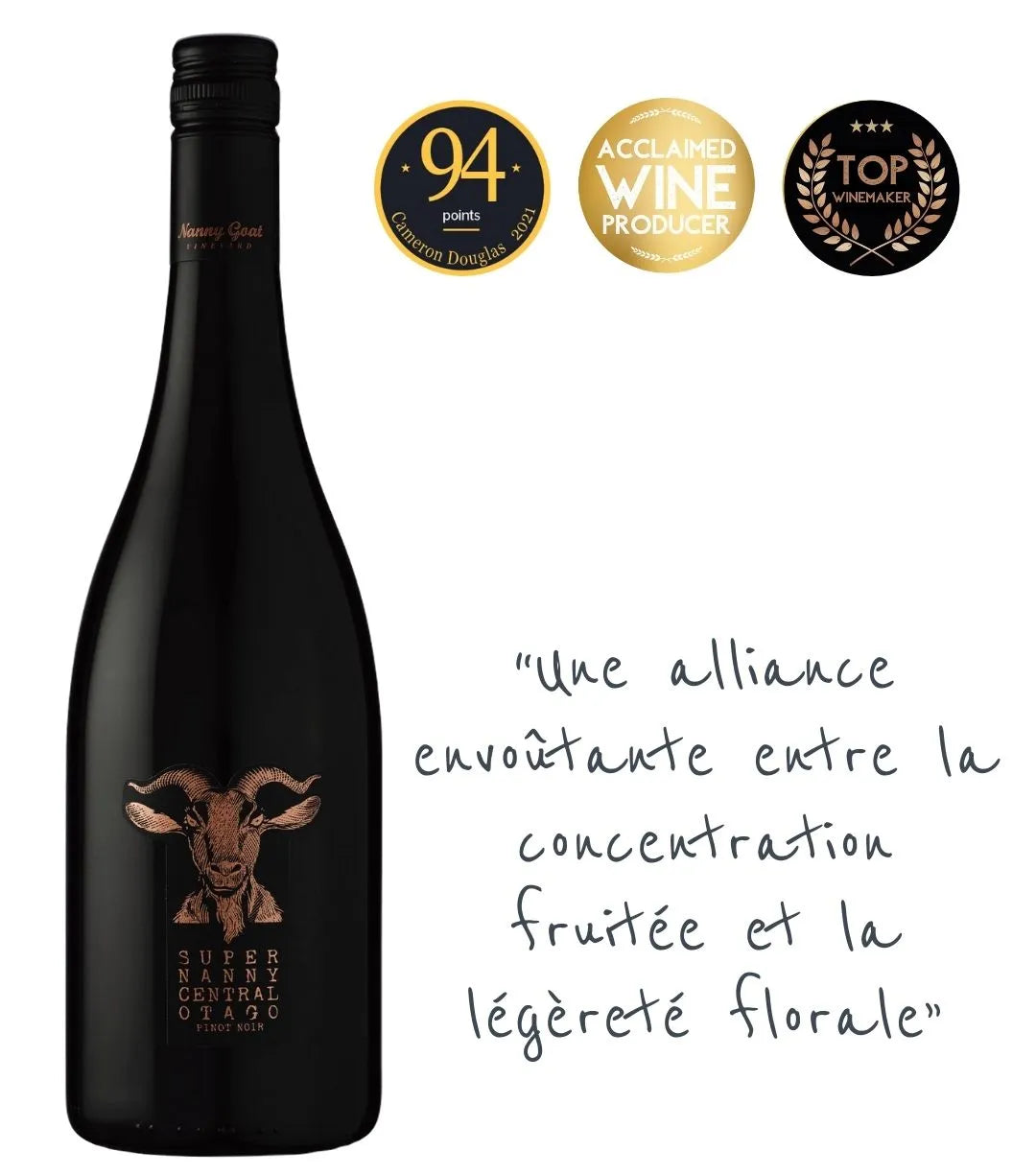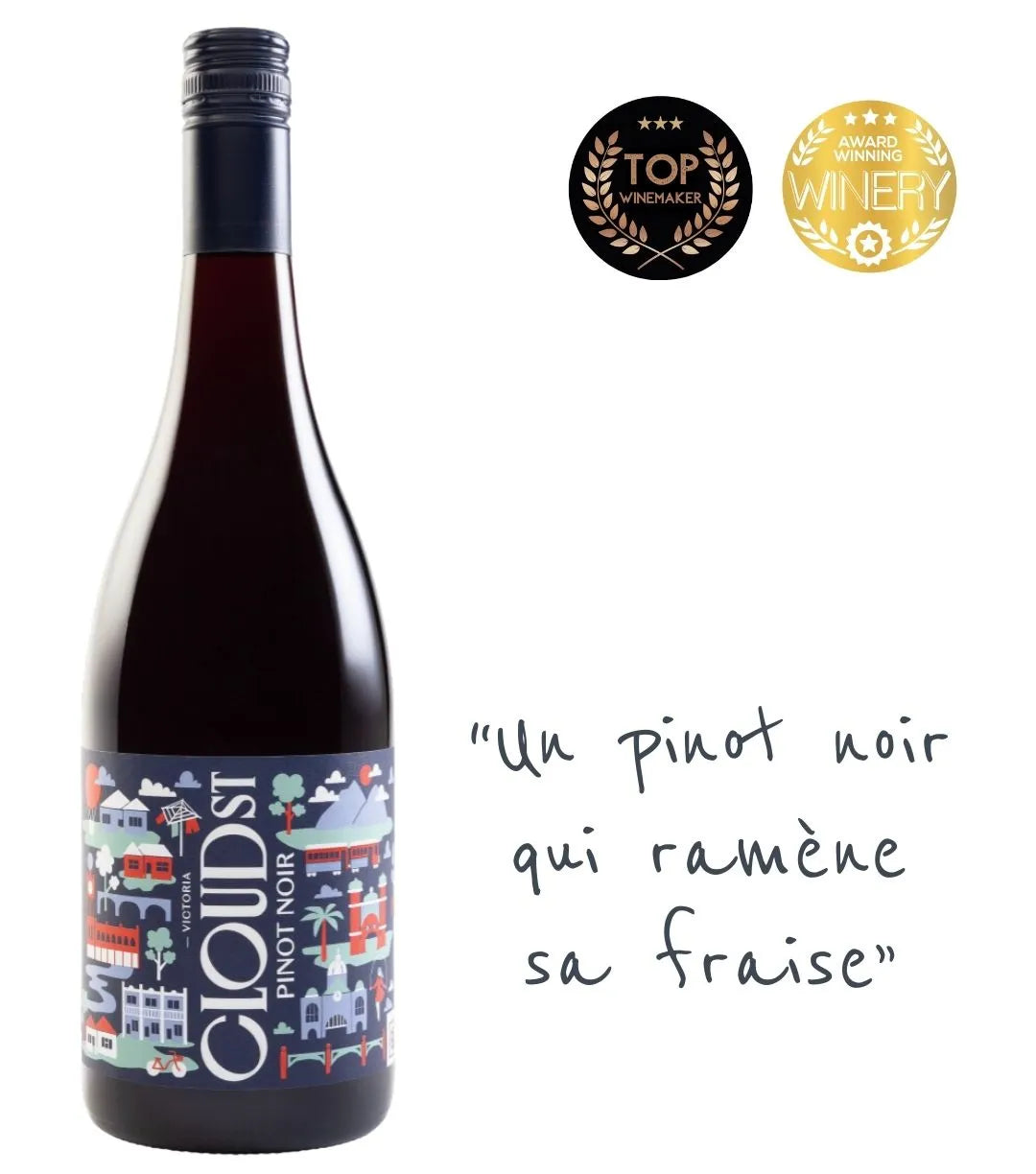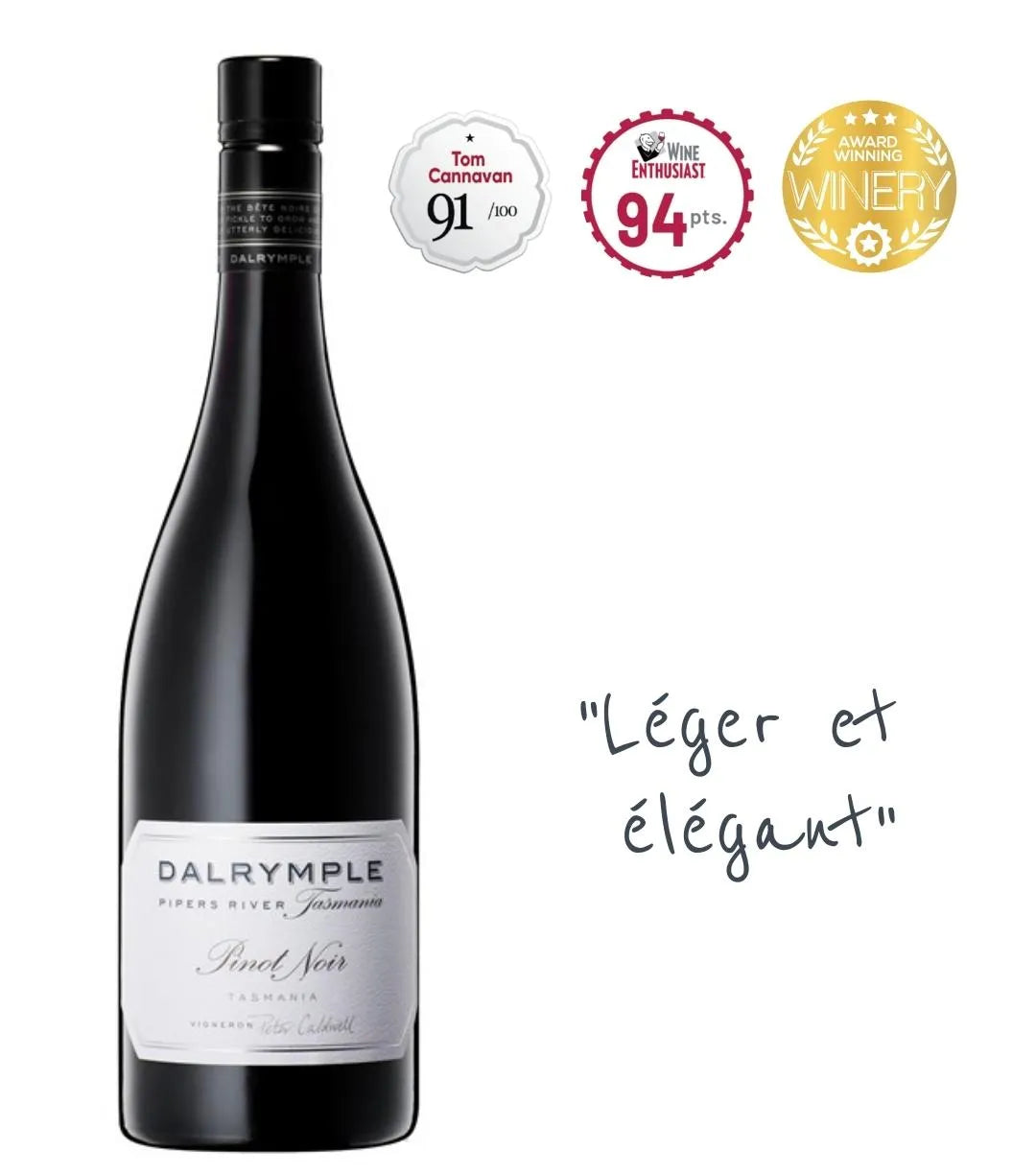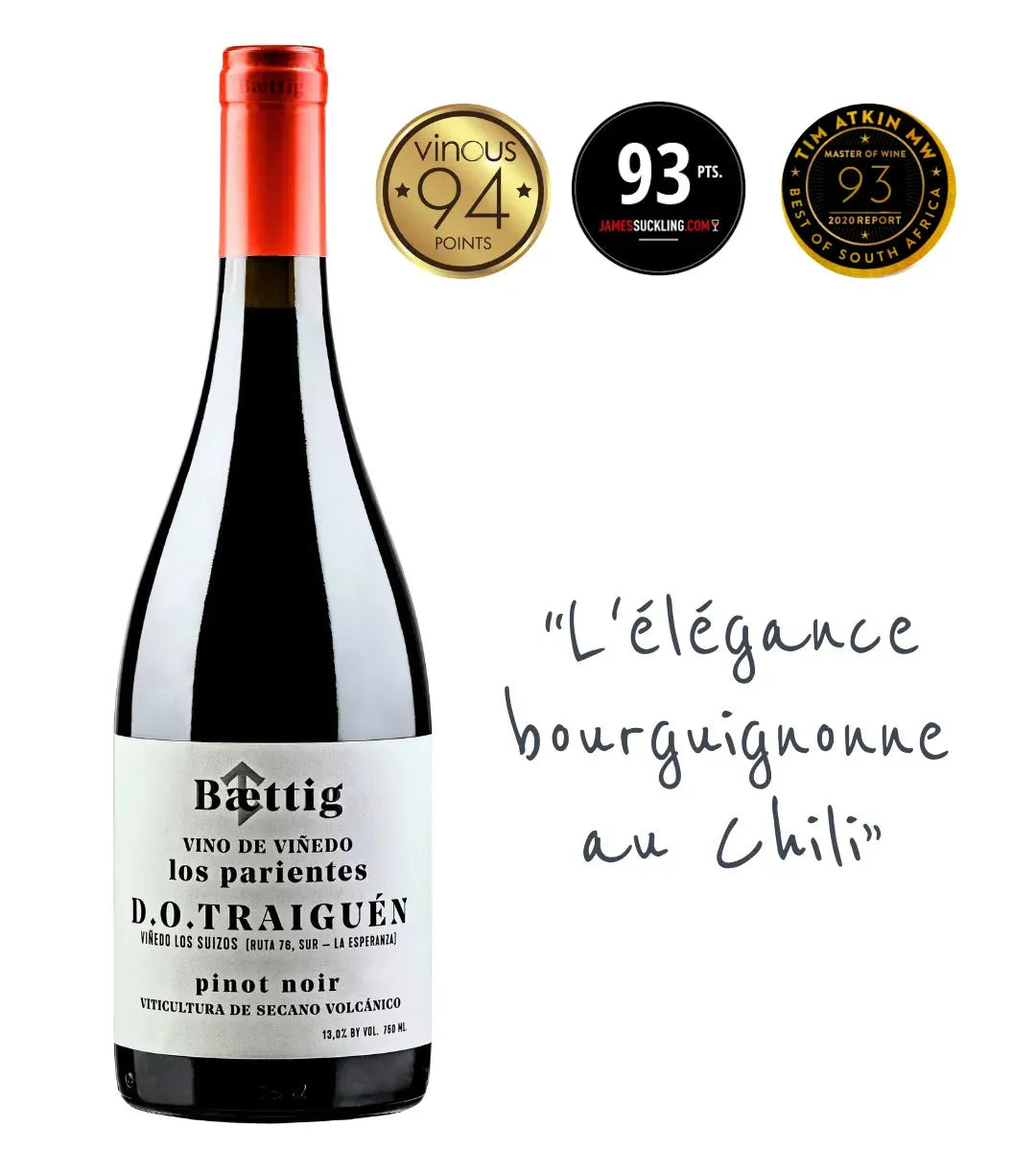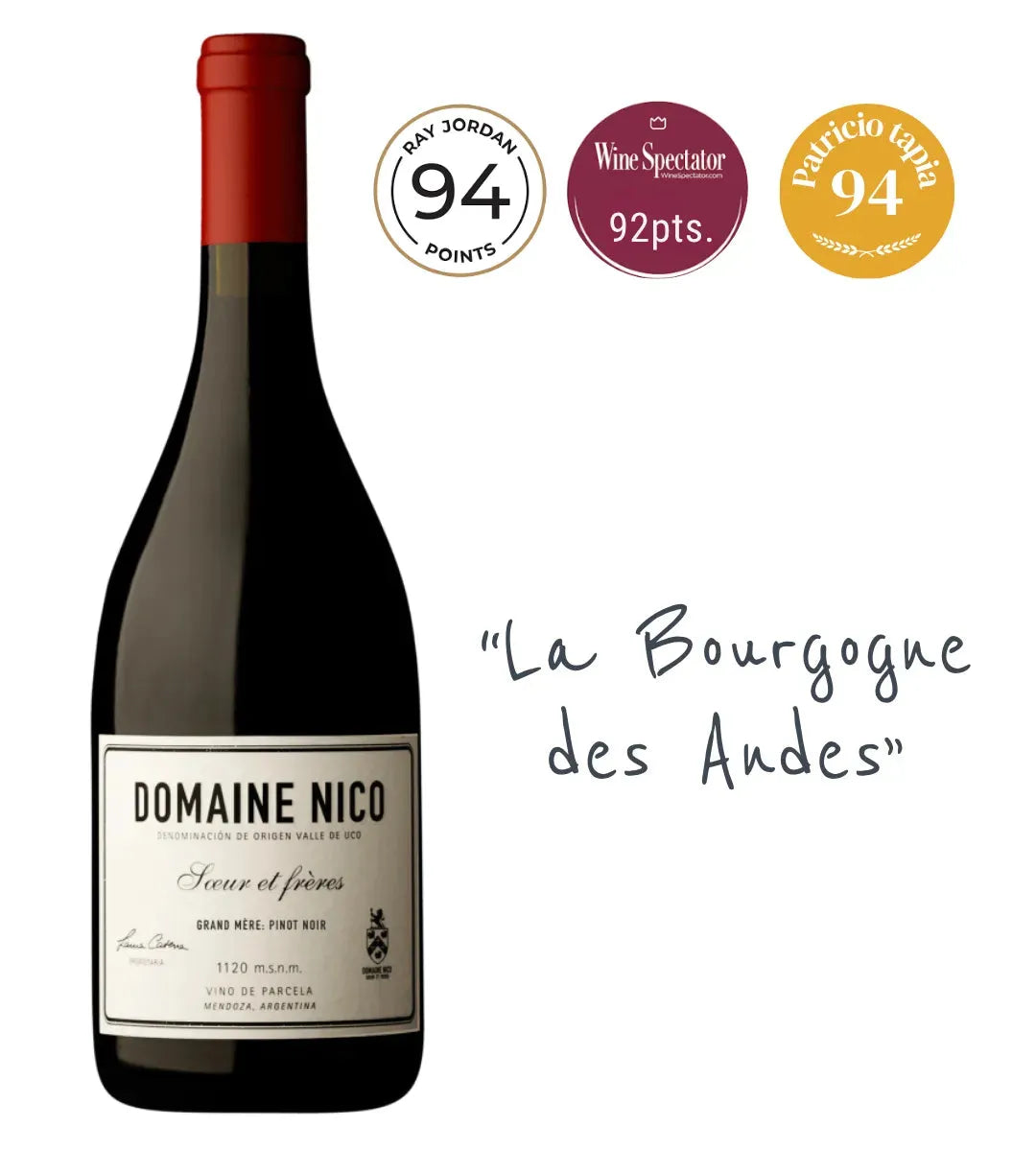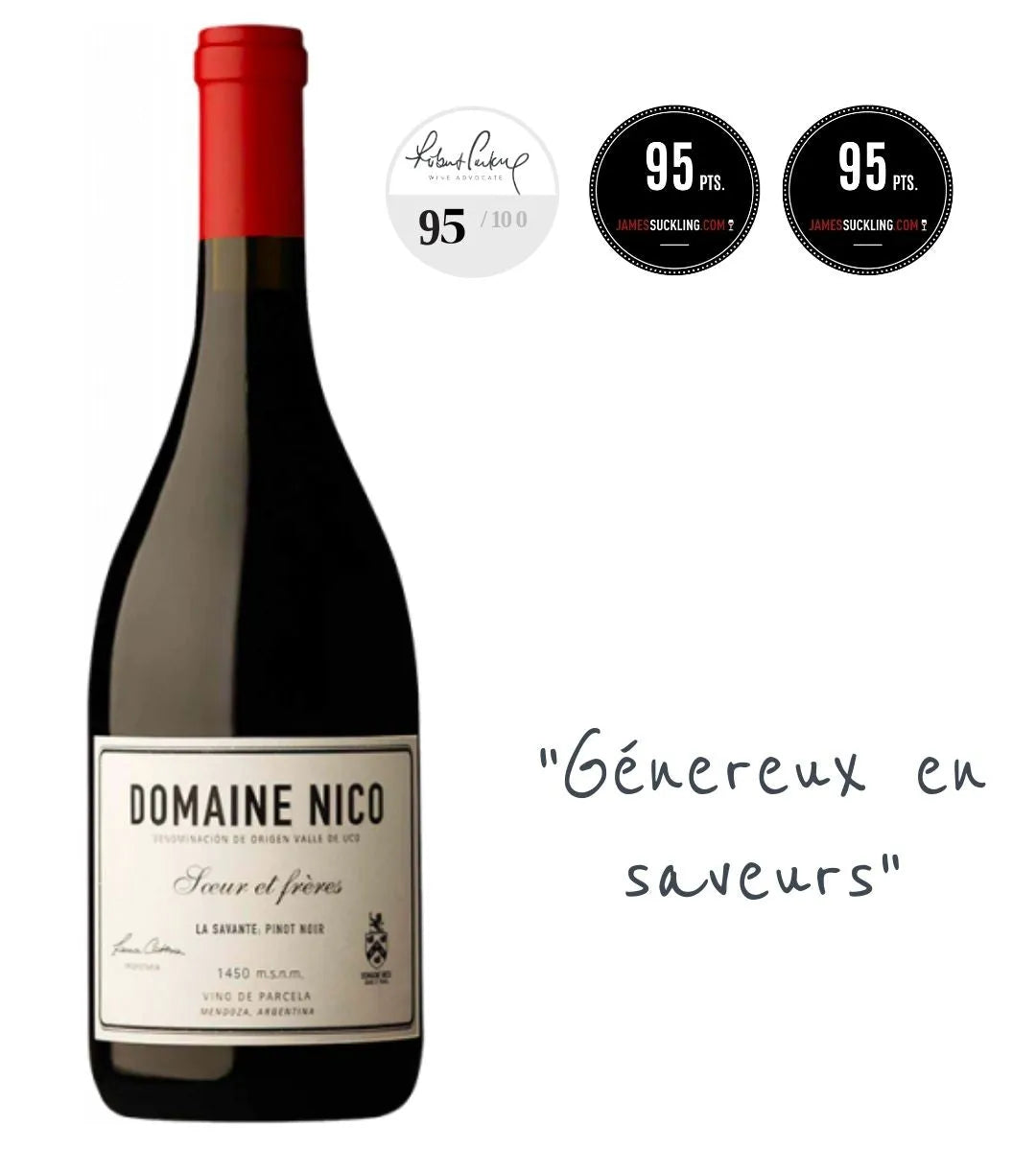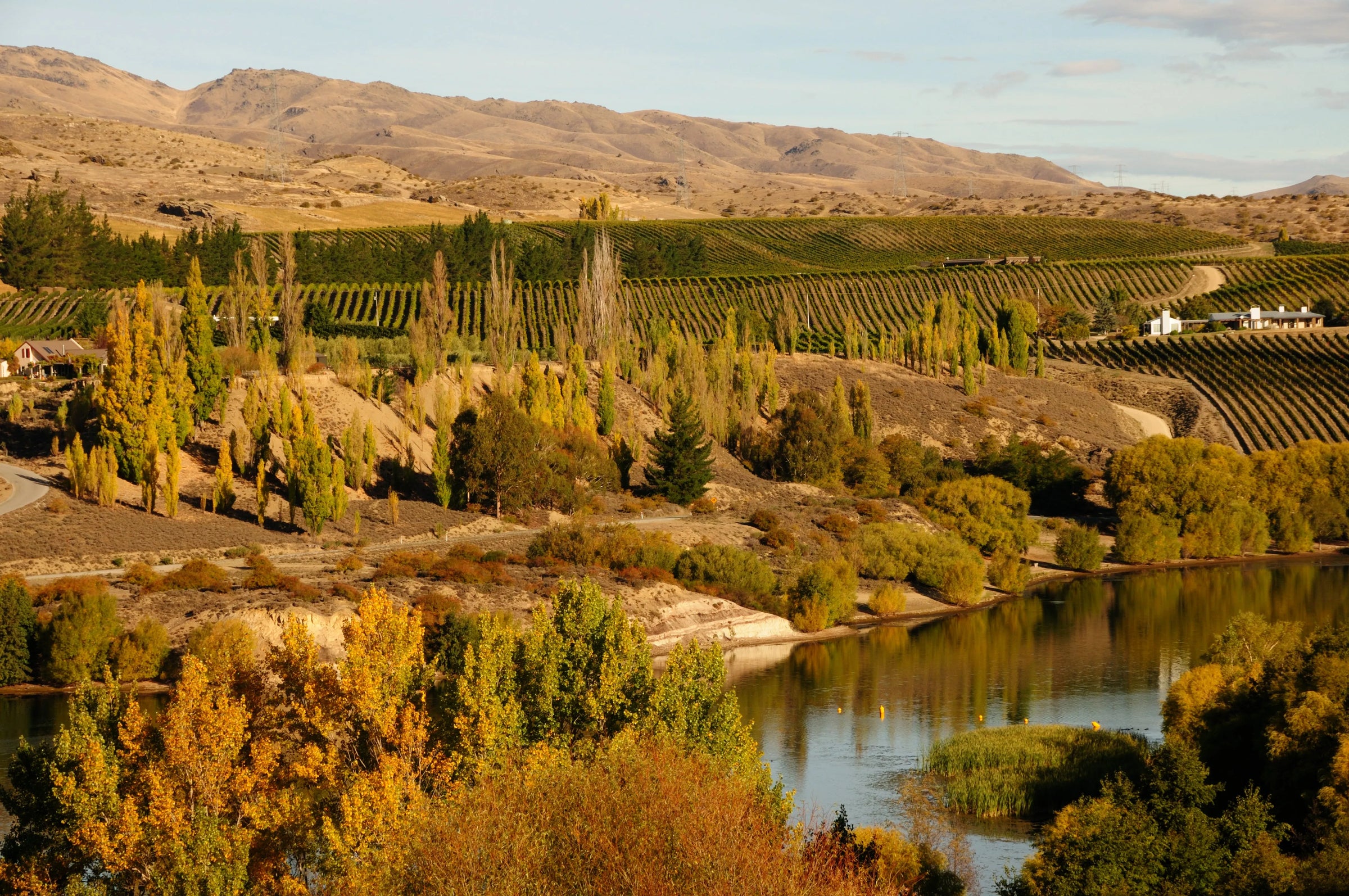
Pinot Noir Red Wine
Pinot Noir Red Wine
Pinot Noir may be synonymous with the Bourgogne region of France, but this grape has spread across the globe. You'll find Pinot Noir in Oregon, Oceania, and essentially anywhere vines grow. Pinot Noir is a magical variety, full of contradictions that create harmonious wines. It's both silky and powerful, light and full-bodied, complex and crisp. When young, it offers aromas of berries, cherries, and blackcurrant. As it ages, it develops notes of undergrowth, leather, truffle, and fur, transforming from a fruity delight to a woodland delicacy. Versatile with foods like mushrooms, barbecue pork ribs, roast turkey, and cheese, Pinot Noir shines on its own, needing no opening act.

La Pampa Les Andes, Argentina

Yarra Valley, Australia

AOC Champagne Champagne, France

Yarra Valley, Australia

AOC Champagne Champagne, France

AOC Champagne Champagne, France
Pinot Noir Red Wine
The Pinot Noir grape variety is one of the oldest and most prestigious in the world. Known for its elegant and complex wines, it is particularly associated with the great wines of Burgundy, but its influence and cultivation have spread across the globe.
Origin
Pinot Noir originates from the Burgundy region in France, where it has been cultivated for over two millennia. This grape variety is one of the oldest still in cultivation today, and its history is intimately tied to that of the great Burgundy wines. The Cistercian and Benedictine monks played a crucial role in the development and spread of this grape during the Middle Ages by establishing vineyards that still exist today.
Main Characteristics and Preferred Viticultural Conditions
Pinot Noir is known for its sensitivity to growing conditions, making it a delicate variety to cultivate. It prefers cool to moderately warm climates with sunny days and cool nights. The most suitable soils are limestone, clay-limestone, and marl, like those found in Burgundy.
The grape clusters of this variety are compact and small, with thin-skinned berries. This characteristic makes it particularly susceptible to diseases such as gray rot and downy mildew. Wines made from this variety are often light to medium-bodied, with aromas of red fruits (cherry, raspberry, strawberry), floral notes, and spicy or earthy nuances.
In France
Burgundy is the birthplace of Pinot Noir and produces some of the most sought-after wines in the world. The vineyards of the Côte d'Or, particularly in Côte de Nuits and Côte de Beaune, are renowned for their terroir-driven wines that express the diversity of the region's soils and microclimates. Prestigious appellations like Vosne-Romanée, Gevrey-Chambertin, and Pommard are synonymous with great Burgundy wines.
In Alsace, it is one of the few red grape varieties grown in a region primarily known for its white wines. The Alsatian version is usually vinified in a lighter, fresher, and fruitier style, sometimes even used to produce rosé wines.
This grape variety is key in Champagne production, often blended with Chardonnay and Pinot Meunier. In this region, it adds structure, depth, and red fruit aromas to sparkling wines.
Sancerre and Other Regions
Although Sancerre is mainly known for its white wines made from Sauvignon Blanc, the Sancerre appellation also produces reds and rosés from this variety. This grape can also be found in Lorraine, Jura, and Savoie.
In the Old and New Worlds
In Italy, this variety is known as Pinot Nero. The Trentino-Alto Adige and Lombardy regions produce elegant wines often marked by red fruit notes and vibrant acidity.
Swiss wines, especially those produced in the cantons of Vaud and Valais, offer interesting expressions of this grape variety. Swiss wines from this variety are often balanced, with subtle aromas and a nice freshness.
New Zealand, particularly the Central Otago region, has become famous for its powerful wines, with intense black fruit aromas and well-integrated tannins, making New Zealand wine a serious contender on the international stage.
In the United States, Oregon, particularly the Willamette Valley, is renowned for this variety. The wines from this region are comparable to great Burgundies, with aromatic complexity and a silky texture. Oregon wines stand out for their exceptional quality and respect for the terroir.
Wine Prices? Things to Know
The price of wines made from this grape variety can vary significantly depending on the region, producer, and quality of the vintage. Generally, great Burgundy wines are among the most expensive in the world, with some crus reaching astronomical prices at auctions. However, more affordable versions can be found, notably in Alsace, Switzerland, and Italy.
In the New World, wines from New Zealand and Oregon often offer excellent value for money. It is important to note that Pinot Noir production is often limited due to its sensitivity, which can influence prices.
Pinot Noir has conquered the world thanks to its ability to produce wines of remarkable finesse and complexity. From the great wines of Burgundy to the elegant Alsatian versions, through the rich Italian expressions, subtle Swiss wines, and powerful versions from New Zealand and Oregon, this variety continues to fascinate wine enthusiasts and challenge winemakers around the world.
For more information, check out our list of grape varieties!




